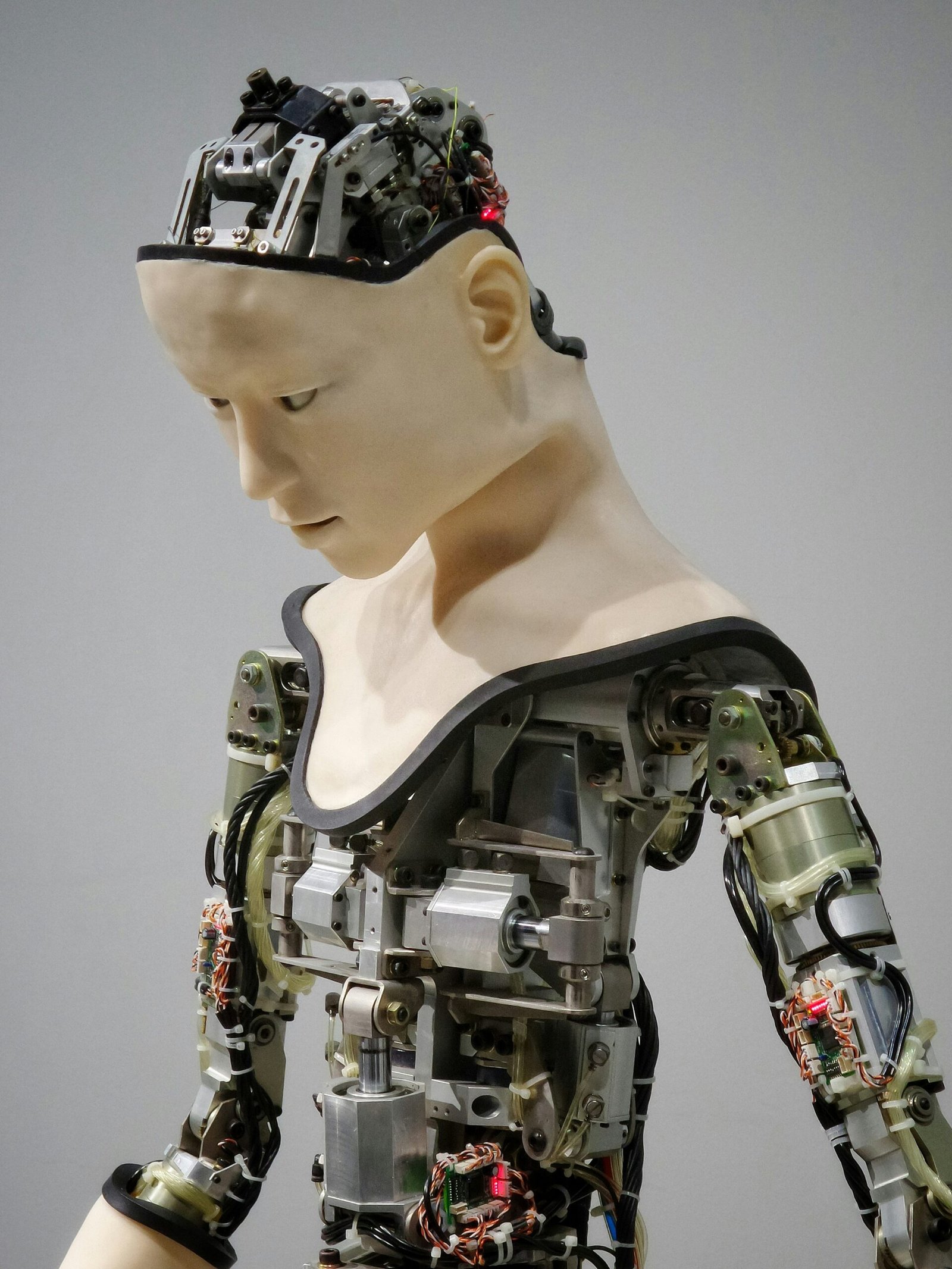Former OpenAI Researcher Launches New AI-Powered Teaching Assistants Company

Introduction to the New Venture
In the ever-evolving landscape of artificial intelligence, key figures often emerge whose contributions significantly shape the industry. One such individual is Dr. Alex Thompson, a former researcher at OpenAI renowned for his groundbreaking work in natural language processing and machine learning. During his tenure at OpenAI, Dr. Thompson was instrumental in the development of several advanced AI models that have since become industry benchmarks.
With a robust background that includes leading high-profile projects and publishing influential research papers, Dr. Thompson has consistently demonstrated an exceptional ability to push the boundaries of what AI can achieve. His work at OpenAI not only garnered widespread acclaim but also laid the groundwork for numerous applications that are now integral to various sectors, from healthcare to finance.
Building on this impressive foundation, Dr. Thompson has recently announced the launch of his new company, EduAI. This innovative venture is dedicated to developing AI-powered teaching assistants aimed at revolutionizing the educational landscape. By leveraging advanced machine learning algorithms and natural language processing, EduAI intends to create intelligent systems capable of providing personalized learning experiences, thus addressing the diverse needs of students in a more effective manner.
The significance of this new company cannot be overstated. In an era where digital transformation is rapidly changing how education is delivered and consumed, the introduction of AI-powered teaching assistants represents a pivotal step forward. These AI-driven tools promise to enhance the educational experience by offering tailored support, fostering better engagement, and ultimately improving learning outcomes. Given Dr. Thompson’s track record and the potential of AI in education, EduAI stands poised to make a substantial impact on the industry.
The Inspiration Behind AI-Powered Teaching Assistants
The inception of the new AI-powered teaching assistants company is rooted in the profound ambition to address the multifaceted challenges faced by the contemporary education sector. The founder, a former OpenAI researcher, identified a significant gap in the existing educational framework – the need for personalized learning experiences tailored to individual student needs. This realization came from observing the often generalized and one-size-fits-all approach prevalent in many educational institutions, which fails to cater to the diverse learning paces and styles of students.
One of the primary motivations driving the creation of this company is the potential of AI to provide scalable teaching resources. Traditional education systems often struggle with limited human resources, making it challenging to offer individualized attention to every student. AI-powered teaching assistants can bridge this gap by augmenting the capabilities of human educators, ensuring each student receives the personalized guidance they require. These digital assistants can analyze student performance data, adapt to their learning curves, and provide custom feedback, thereby enhancing the overall learning experience.
Administrative burdens on educators also constitute a significant challenge that this new company aims to mitigate. Teachers often find themselves overwhelmed with administrative tasks such as grading, scheduling, and reporting, which detracts from their core responsibility of teaching. AI-powered solutions can automate these routine tasks, allowing educators to focus more on interactive and impactful teaching methods. This not only improves the efficiency of educational delivery but also contributes to a more engaging and student-centric learning environment.
The founder’s vision for transforming education through AI is encapsulated in their statement: “Our mission is to revolutionize the educational landscape by integrating AI to empower both educators and students. We believe that AI can create a more equitable and efficient learning ecosystem, where every student has the opportunity to succeed, and teachers are liberated from administrative constraints to inspire and educate more effectively.” This vision underscores the transformative potential of AI in redefining the future of education.
How AI-Powered Teaching Assistants Work
The groundbreaking technology behind AI-powered teaching assistants leverages a combination of natural language processing (NLP), machine learning (ML) algorithms, and data analytics to enhance educational experiences. At the core of these assistants is NLP, which enables the system to understand, interpret, and respond to human language in a way that is both accurate and contextually relevant. This allows the AI to interact with students in a conversational manner, providing answers to their questions and guiding them through complex topics.
Machine learning algorithms play a crucial role in the adaptability of AI-powered teaching assistants. By analyzing vast amounts of data from student interactions, these algorithms can identify patterns and predict outcomes. This capability allows the AI to tailor the learning experience to each individual student, offering personalized recommendations and targeted feedback. For instance, if a student consistently struggles with a particular concept, the AI can provide additional resources or alternative explanations to facilitate understanding.
Data analytics further enhances the functionality of these AI systems by offering insights into student performance and engagement. By aggregating and analyzing data from various sources, the AI can identify trends and generate reports that help educators make informed decisions. For example, data analytics can highlight which teaching methods are most effective, allowing teachers to refine their strategies and improve overall educational outcomes.
In practical applications, AI-powered teaching assistants can automate many administrative tasks, such as grading assignments, scheduling, and managing classroom activities. This automation frees up valuable time for teachers, enabling them to focus more on direct instruction and student interaction. Additionally, these assistants can provide real-time support to students outside of regular class hours, ensuring that learning continues beyond the traditional classroom setting.
One notable case study involves a middle school that implemented AI teaching assistants to support a blended learning model. The AI was able to provide instant feedback on student assignments, identify areas where students needed extra help, and even suggest additional reading materials. As a result, the school saw a significant improvement in student performance and engagement, demonstrating the transformative potential of AI in education.
Future Prospects and Impact on Education
The integration of AI-powered teaching assistants into the education system holds immense potential for transformative change. As these technologies advance, they promise to make education more accessible, personalized, and efficient. AI teaching assistants can provide tailored support to students, adapting to individual learning styles and paces. This personalization can significantly enhance learning outcomes, making education more inclusive and equitable.
One of the most promising aspects of AI in education is its ability to democratize learning. By providing high-quality, individualized instruction at scale, AI teaching assistants can bridge gaps in educational resources, especially in underserved regions. Students who previously had limited access to experienced educators can now benefit from advanced teaching tools, leveling the playing field and fostering a more inclusive learning environment.
However, the implementation of AI-powered teaching assistants is not without its challenges. Data privacy remains a significant concern, as the collection and analysis of student information are intrinsic to the functioning of AI systems. Ensuring that this data is protected and used ethically is paramount. Additionally, the digital divide could exacerbate educational inequalities if access to these technologies is not evenly distributed. It is crucial to develop strategies that address these disparities and ensure that all students benefit from AI advancements.
Looking ahead, the founder of the new AI-powered teaching assistants company envisions a future where technology and education are seamlessly integrated. Their goal is to create a robust framework that maximizes the benefits of AI while mitigating its risks. By prioritizing data security and striving to make AI tools accessible to all, the company aims to foster an educational landscape that is both innovative and equitable. They are committed to continuous improvement and collaboration with educators, policymakers, and technologists to navigate the evolving challenges and opportunities in AI-driven education.





